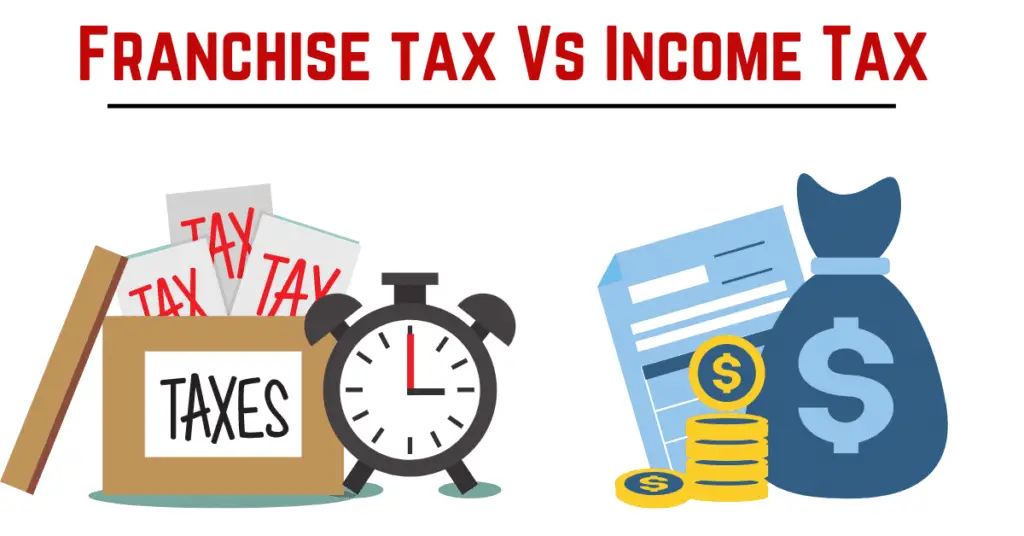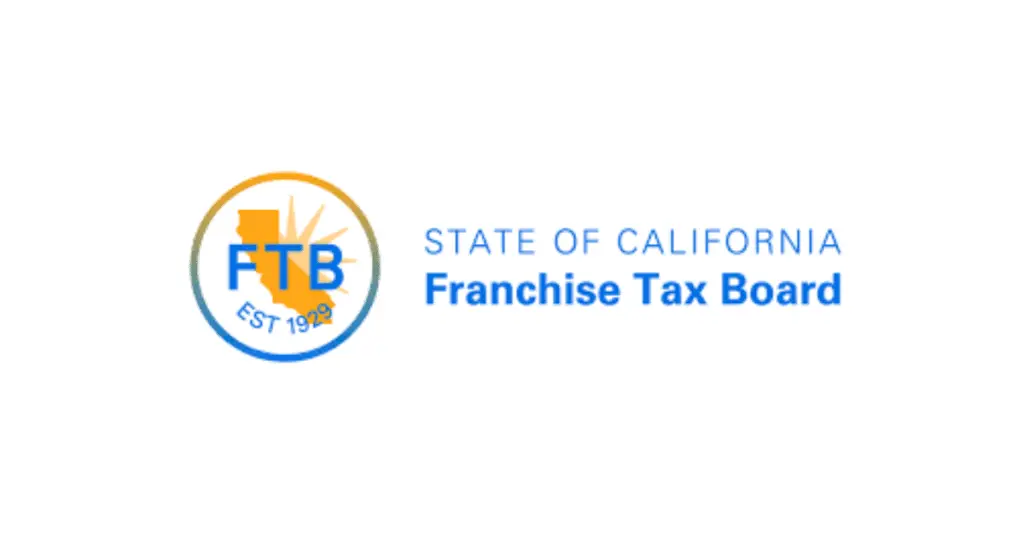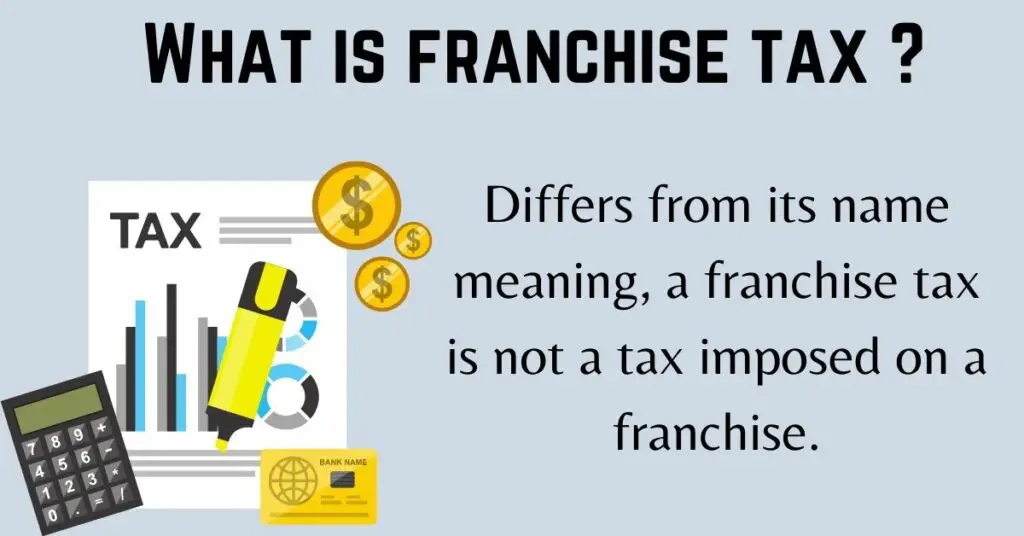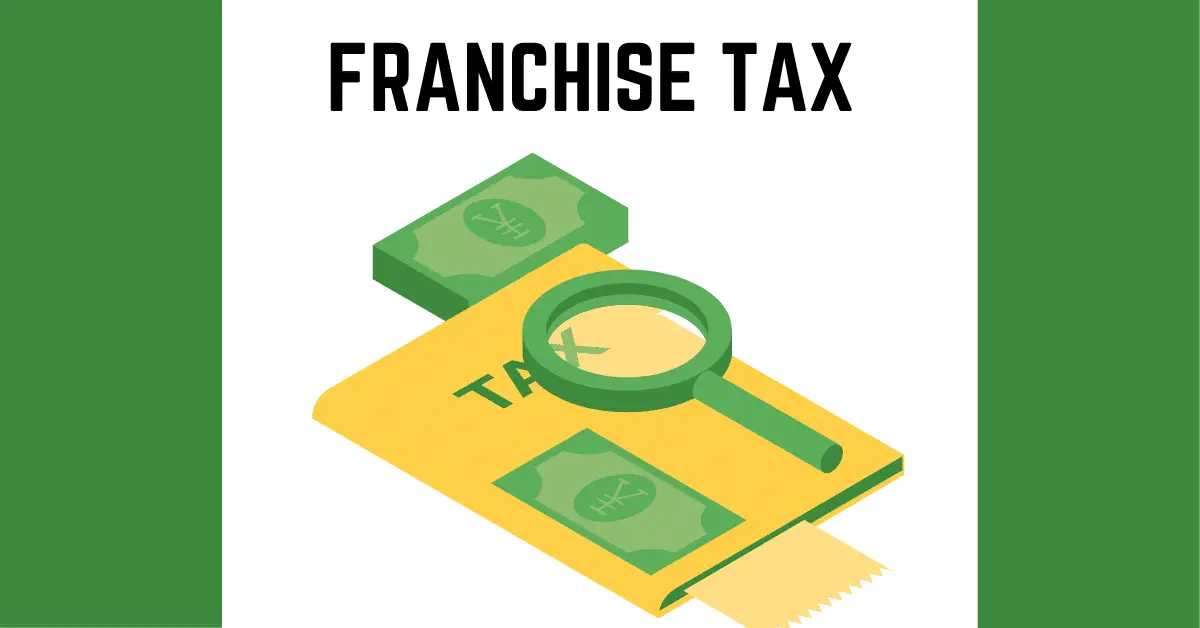There are a variety of taxes that businesses must pay. Each tax has its own set of rules and requirements that businesses must follow. This article will give you a brief overview of what is franchise tax.
Businesses must also pay taxes on wages and salaries paid to employees. These taxes include the federal income tax, the social security tax, and others.
The franchisees and franchisors also pay sales tax, GST, and franchise excise taxes.
I am writing on franchise tax because many entrepreneurs complicate this tax as a tax only for franchises.
This topic may be boring for some. To make it very interesting we shall make it more than FAQs for readers. It will be fun, and you will completely understand franchise tax.
What is franchise tax?
The franchise tax is a tax on businesses in the United States. It is not a tax on a business’s income from its franchise operations.
The franchise tax is a tax paid by companies that wish to do business in some states. It’s a kind of royalty they pay to that state to do business in that state; That’s why the name franchise tax.
It is a privilege tax that gives the right to businesses to be chartered and operate within that state. Some states charge the franchise tax to companies irrespective of whether they are paying it in another state.

What is Franchise tax vs. income Tax?
Now you know what franchise tax is. It is not a tax on franchise businesses, and at the same time, it differs from federal and state income taxes.
Franchise tax differs from income taxes and other federal taxes. The income tax is calculated on net income and is paid in one State of the United States only.
On the other hand, franchise tax has to be paid in all states where the company is doing business.
The franchise tax is a privileged or royalty type of tax, whereas income tax is much higher. It is a portion of the company’s net income.
Are there companies exempted from franchise taxes?
Few organizations are exempted from franchise taxes, like
- Fraternal organizations,
- Few limited liability companies and
- Non-profit organizations or unincorporated political committees.
- Single proprietorships, other than single-member LLC
- Partnerships firms, whose direct ownership with natural persons
- Companies exempted under Tax Code Chapter 171, Subchapter B
How is franchise tax calculated?
The franchise tax is calculated differently in different states in the United States. Some states have fixed annual fees as franchise tax, whereas it’s a fixed fee or percentage of net income in some states.
Which states have franchise tax?
The states have any franchise taxes are
Alabama, Arkansas, California, Delaware, Georgia, Illinois, Louisiana, Mississippi, New York, North Carolina, Oklahoma, Tennessee, Texas, and Washington D.C.
What states don’t have franchise tax?
These Nine states of the United States of America that don’t have franchise taxes are
Alaska, Florida, Nevada, New Hampshire, South Dakota, Tennessee, Texas, Washington, and Wyoming.
Kansas, Missouri, Pennsylvania, and West Virginia discontinued their corporate franchise taxes.

What is a franchise tax board?
The Franchise Tax Board (FTB) is the primary tax authority for California. The FTB administers the franchise tax, the business franchise tax, the corporate franchise tax, the partnership franchise tax, the limited liability company franchise tax, and the trust franchise tax.
The FTB also administers the California Unemployment Insurance Tax and the California Incentives for Business Investment Tax Credit.
A franchise tax board is a tax agency in the United States that administers state and local franchise taxes.
Franchise tax boards were created by the Franchise Tax Reform Act of 1986. These boards administer State and local franchise taxes. Taxes are levied on businesses that operate under franchise agreements.
Franchise tax boards are responsible for collecting franchise taxes from businesses under franchise agreements. The franchise tax board can also assess penalties and fines against franchisees who do not pay their taxes.
Franchise tax boards are divided into state franchise tax boards and local franchise tax boards.
The Franchise Tax Board of California (FTB) administers and enforces California’s franchise tax laws. The FTB also administers and enforces the federal franchise tax laws of the United States.
The FTB has the authority to collect Franchise and excise taxes.
Delaware Franchise Tax
Delaware is known as a tax haven, particularly for businesses that do not run business in Delaware.
Rather, they have to pay a franchise tax issued by the Delaware Department of State. Companies pay lesser franchise taxes and save more on income and other federal taxes.

What is De franchise tax?
To know about De franchise tax, you must read above What is franchise tax.
De franchise tax is franchise tax charged by the State of Delaware for the right or privilege to own a company in Delaware.
The franchise tax need not be on a franchise business. It’s on all kinds of business in the State of Delaware.
How is de franchise tax calculated?
The Delaware franchise tax rates depend on the size of the company. This tax is due on March 1 of every year.
The Delaware franchise tax rates is as below.
DELAWARE FRANCHISE TAX CALCULATION
How is de franchise tax calculated
| Exempted Companies | Zero Franchise Tax,Filing Required |
| Annual Filling Fees | $ 50 + taxes |
| Penalty to not file before March 1st | $ 200 +1.5% interest |
| Limited Liability Companies & Partnerships | $ 300 |
| Minimum Tax for Authorised Capital method | $ 175 |
| Minimum Tax for Authorised Capital method | $ 400 |
| Maximum Tax for either method | $200.000.00 |
What is the Texas franchise tax?
As we know, what is franchise tax, and it is calculated in different ways in different states. The State of Texas levies franchise tax on all companies doing business in the State and mandates them to file the Annual Franchise Tax Report every year by the 15th day of May month.
The Comptroller of the State of Texas commutes franchise tax based on a company’s margin, computed in one of these methods.
- 70% * Total Revenue of Company
- Total revenue of Company – Cost of Goods Sold (COGS)
- Total revenue of Company – Salaries Paid to Staff
- Total revenue of company – $1 million
This franchise tax is calculated by multiplying the margin with the given percentage below.
Who collects franchise tax?
The State and its franchise tax boards collect the franchise tax and have different methods to calculate and find what franchise tax is.
These franchise tax boards have its deadlines for submitting the Annual Franchise tax report.
What are the legal ramifications for not paying franchise tax?
If a company fails to pay franchise tax in that State, it will lose its legal standing in that State. LLCs may lose their protections and right to file a legal suit.
Conclusion
A franchise tax is a state tax imposed on certain companies for the privilege of existing as a legal entity and doing business within a particular state jurisdiction.

Franchise taxes allow businesses to conduct business within that state, though states have contrasting tax rates for the companies based on their legal status and gross revenue groups.
I hope you don’t have any confusion about what is franchise tax. Why it is imposed and how it is collected.
Frequently Asked Questions (FAQ)
Why you should start a franchise business in 2023?
ATM Franchises: Best Business franchise for sale
Best Franchises To Own and Franchise in 2022 and 2023
Best Franchises To Open In Florida in 2023
Best Franchises To Own In Texas and Top Franchise for Sale






This is one of the most significant guide for franchises to learn more about taxes. Great work by franchisedeck to solve confusion between franchise tax and franchise business tax
The amount of the tax varies from state to state, and is generally based on a company’s net worth or gross receipts.Franchise Tax is often seen as an alternative to corporate income tax, and is often imposed in addition to corporate income tax. good info share frachisedeck
Failure to pay Franchise Tax can lead to penalties and interest, as well as the possibility of losing the business’s corporate status.Franchise Tax can be a complex and confusing process, so it is important to consult with a qualified tax professional to ensure all requirements are met.
The franchise tax is a form of taxation imposed on businesses and corporations.
It is generally charged as a percentage of the company’s gross or net income.
The franchise tax is a type of privilege tax, meaning that it is levied on the privilege of doing business in a particular state. The franchise tax is imposed on corporations, partnerships, and limited liability companies that are formed in the state. The amount of franchise tax depends on the type of business entity, the number of employees, and the size of the company.
The franchise tax is usually paid annually, with payments due by a certain date. States use franchise tax revenue to fund important public services such as schools, roads, and social programs. Franchise tax is often subject to change from year to year, so businesses must stay up to date on any changes. Some states offer incentives or tax credits to businesses to offset the cost of franchise taxes Franchise tax is distinct from income tax and sales tax, which are typically imposed on individuals and businesses, respectively.
Franchise tax is not a single, uniform rate; it varies by state and by the size of the business.
Franchise tax is typically higher for larger businesses than for smaller ones. Franchise tax is an important source of revenue for state governments and is used to fund important public services. Businesses must pay attention to changes in franchise tax rates and to any incentives or credits that may be offered. Businesses must also make sure to pay their franchise tax on time to avoid penalties and interest charges.